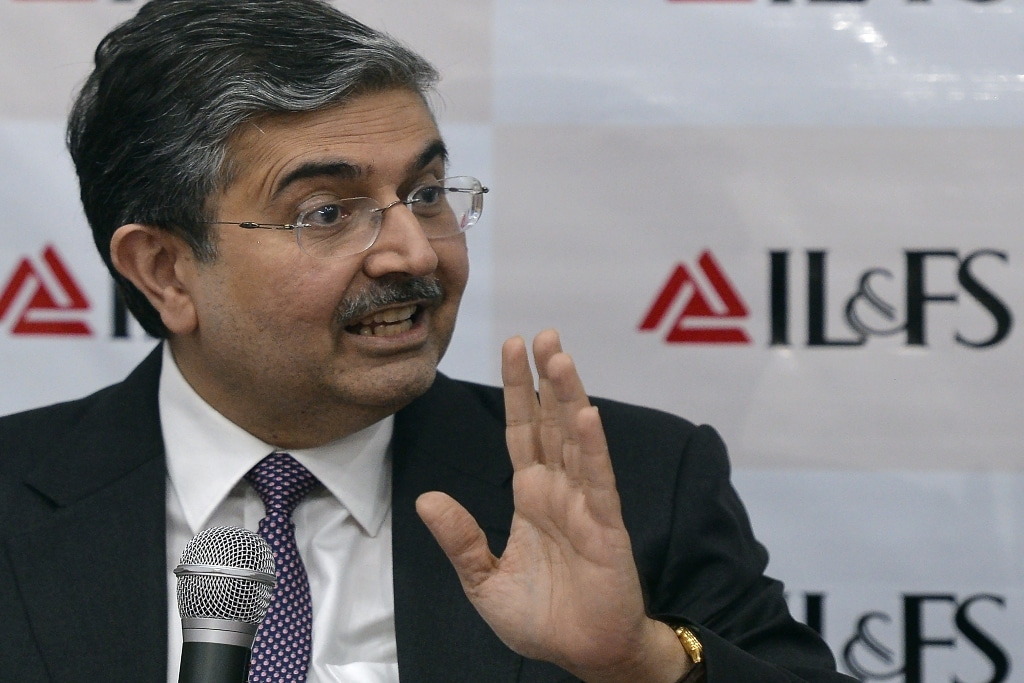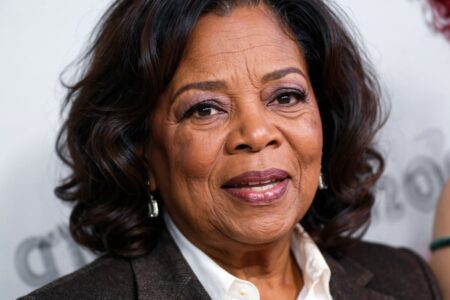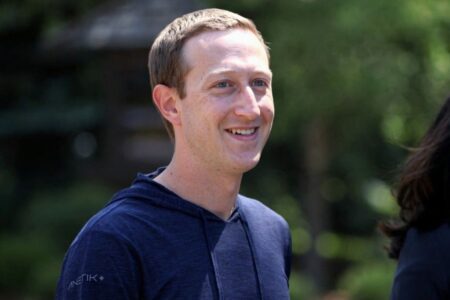
There are 2,755 billionaires in a world with over seven billion people, according to Forbes.
As a country with around 1.4 billion people, it is no surprise that India is home to 169 billionaires — the third-highest in the world.
The tops the list with 735 billionaires, followed by China with 495 billionaires.
The number of billionaires in India is more than in developed countries like Germany, Italy, Canada, the UK, Australia, France, Switzerland, and Japan.
While some inherited vast fortunes from their families, many can be considered self-made (with a lot of luck).
Education is a key theme that has played a pivotal role in shaping the lives and careers of these individuals and taking them far beyond their local shores.
Whether through technical knowledge gained from engineering degrees or business skills acquired through management education, these billionaires exemplify the role of education in paving the way for innovation and leadership.
 After their father’s death, Mukesh and Anil Ambani encountered a power struggle for the company.
After their father’s death, Mukesh and Anil Ambani encountered a power struggle for the company.
10 richest Indian billionaires and their education
1. Mukesh Ambani
Mukesh Ambani is not just one of India’s top billionaires but also the richest Asian man in the world. He once famously said money means nothing to him.
But did you know that he wasn’t born in India? Ambani was born in Yemen on April 1957.
Today he may be one of the wealthiest people in the world, but it wasn’t always like this. He was born into a middle-class family where his father worked as a petrol gas attendant from age 16.
Then their luck started to change. Ambani was lucky enough to attend Hill Grange High School while having a tutor who took him on working-class field trips every day where he would ride public transport, buy train tickets and play hockey.
After high school, he went to St. Xavier’s College in Mumbai and then enrolled at the Institute of Chemical Technology. He graduated with a Bachelor of Engineering in Chemical Engineering.
Eager to learn as much as possible before returning to India to help his father expand the family company, he enrolled at Stanford University’s MBA programme.
However, his road to an MBA was cut short as he had to return to India, where his father needed him to build a polyester yarn plant.
Though his success is mainly owed to his father, the education he received has definitely helped him stay at the top.
 Gautam Adani is one of the richest Indian billionaires today.
Gautam Adani is one of the richest Indian billionaires today.
2. Gautam Adani
While dropping out of university gave Gautam Adani a headstart to his very successful career, it is a decision he regrets today.
After completing his education at the Sheth Chimanlal Nagindas Vidyalaya School in Ahmedabad, he pursued a Bachelor of Commerce at Gujarat University.
However, at 16 years old, he dropped out of university halfway through the course and hopped on a train to Mumbai with almost no money in his pocket.
The early experience made him wise, but he said he missed out on the formal education that would have definitely broadened his knowledge.
“Reflecting on my life and the different turns it took, I now do believe that I would have benefitted if I had finished college,” he says.
Despite that, Gautam is now one of the top Indian billionaires with a net worth of US$54.9 billion.
 Serum Institute of India’s CEO Adar Poonawalla (right) is the son of Cyrus Poonawalla, one of the richest Indian billionaires today.
Serum Institute of India’s CEO Adar Poonawalla (right) is the son of Cyrus Poonawalla, one of the richest Indian billionaires today.
3. Cyrus Poonawalla
Cyrus Poonawalla is an Indian businessman and philanthropist who is the Chairman of Cyrus Poonawalla Group, which includes the Indian biotech company Serum Institute of India.
Poonawalla completed his elementary education at Bishops School, Pune before joining the Brihan Maharashtra College of Commerce (BMCC) in 1966.
Poonawalla acquired a PhD in 1988 at Pune University for the thesis titled “Improved Technology in the Manufacture of Specific Anti-toxins and its Socio-Economic Impact on the Society.”
At age 20, Poonawalla realised his family’s horse racing business had no future. He then started experimenting with cars and built a US$120 prototype sports car modelled on the D-type Jaguar with a friend.
However, they did not have enough capital to produce such cars commercially.
Dropping the idea and thought of manufacturing cars for the masses, Poonawalla turned to targeting the elite community of society. At that time, horses were donated to Haffkine Institute in Mumbai, a government-owned firm that manufactured vaccines using horse serum.
Poonawalla noted the scope of the serum industry and decided to take upon the challenge of producing vaccines by extracting horse serum. He aimed at availing these vaccines and supplying them across the country at affordable prices.
Today, he is known as the “vaccine king of India” because his firm manufactures pediatric vaccines and contributes towards society by providing low-cost vaccines to the masses.
 Shiv Nadar (right) worked hard to earn his spot as one of the wealthiest Indian billionaires today.
Shiv Nadar (right) worked hard to earn his spot as one of the wealthiest Indian billionaires today.
4. Shiv Nadar
Shiv Nadar, an Indian billionaire and philanthropist, is the founder and chairman of HCL Technologies, one of India’s leading IT services and consulting companies.
Since establishing the company in the mid-1970s, he has transformed the IT hardware company into an IT enterprise over the next three decades.
Being able to predict the future and being decisive led Nadar, and in turn, India to become an IT hotspot today.
Unlike most billionaires, Nadar was not born with a silver spoon in his mouth. He has climbed his way to the top through the education he gained from his degree in Electrical and Electronics Engineering at PSG College of Technology in Coimbatore and his many work experiences, including working at Walchand group’s College of Engineering Pune (COEP) and Delhi Cloth Mills.
The decision to start his own company came about when he realised that working 10 to 12 hours a day wasn’t for him. Accompanied by his colleagues, they quit their job and started their own company.
Fun fact: Nadar cofounded HCL in a garage in 1976, making calculators and microprocessors with five friends.
“If you are calm about your ambitions, you become confident of achieving what you set out to do,” he says.
5. Savitri Jindal
Move aside, men. Savitri Jindal is the only woman to join the list of top 10 Indian billionaires. As one of India’s wealthiest women, with a net worth of US$20.3 billion, the wealthy Jindal Group mogul is the fifth richest Indian person in India.
But Jindal wasn’t born into wealth. She married into it. She is the wife of O.P. Jindal, who founded his steel company two years after they got married. The company went on to become a leading conglomerate.
Unfortunately, her husband died in 2005 from a helicopter crash, and she had to take his place at the helm of the business.
Jindal did not attend college and only had a diploma from Assam University. Despite not having an extensive education, she proved her worth climbing her way to the top of the billionaire club.
She joins Adani and Ambani on Forbes’ India’s 100 Richest list.
6. Dilip Shanghvi
Dilip Shanghvi is a prominent Indian business tycoon and the visionary behind Sun Pharmaceutical Industries, the first Indian pharma company with a US$5 billion valuation.
It all started with a US$200 loan from his father to start Sun Pharmaceutical Industries in 1983 to make psychiatric drugs.
Sun later grew through a series of acquisitions, the biggest of which was the 2014 purchase of scandal-tainted rival Ranbaxy Laboratories for US$4 billion.
Today, the company is India’s most valuable listed pharma outfit and gets 65% of its US$5.1 billion annual revenue from overseas markets.
Shanghvi studied at JJ Ajmera High School and Bhawanipur Education Society College, where he graduated with a bachelor’s degree in commerce from Bhawanipur Education Society College, University of Calcutta.
 Lakshmi Mittal gained his knowledge while working at the steel mill for his father.
Lakshmi Mittal gained his knowledge while working at the steel mill for his father.
7. Lakshmi Mittal
Most of us have after-school jobs to gain experience and earn extra cash. For Lakshmi Mittal, his after-school job led him to become a billionaire.
After moving to Calcutta, where his father operated a steel mill, Mittal worked there while completing his studies at St. Xavier’s College.
After graduating in 1970 with a bachelor of commerce degree, he served as a trainee at the mill. Then in 1976, he moved to Indonesia to set up a small steel company that, over time, grew to become ArcelorMittal.
Today, ArcelorMittal is the world’s leading steel and mining company and one of the foremost industrial companies in the world. Mittal was the CEO until he handed the reins to his son, Aditya Mittal, in 2019.

Before Radhakishan Damani was the retail king of India, he grew up in a single-room apartment in Mumbai.
8. Radhakishan Damani
Radhakishan Damani was raised in a single-room apartment in Mumbai. Despite his circumstances, he was determined to make it big.
Today, he is known as the “retail king of India.” The Indian entrepreneur and prominent investor is renowned as the founder of Avenue Supermarts Limited, which runs over 200 DMart stores in India.
Damani made the bold decision to drop out of his commerce programme at the University of Mumbai after just one year. Though not ideal, he got a headstart on his career and gained the experience he needed to be where he is today.
9. Kumar Birla
Kumar Birla inherited his family’s empire when he was 28 years old after his father died. Before assuming his role as the head of Aditya Birla Group, Birla was busy studying and gaining as much knowledge as possible.
He attended Sydenham College of Commerce and Economics for high school and earned a bachelor’s degree from H.R. College of Commerce and Economics at the University of Mumbai.
He then decided to further his education at London Business School and achieved a Master of Business Administration from the University of London.
Upon returning to India, Kumar Birla joined the Institute of Chartered Accountants of India. Birla said that studying for his CA was the hardest thing he ever did, but he still came out as the top student and passed on his first try.

Uday Kotak is the founder of one of India's biggest banking and financial services companies.
10. Uday Kotak
Uday Kotak embarked on his entrepreneurial journey when he was just 26 by founding Kotak Mahindra Finance Ltd.
Back then, private Indian banks were virtually non-existent. He transformed Kotak Mahindra Finance into India’s first non-banking financial company to be converted into a bank in 2003. Today, Kotak Mahindra Bank Ltd. is one of India’s most efficient and high-performing banks.
Uday’s passion for mathematics guided his career path, leading him to pursue a bachelor’s degree from Sydenham College in Mumbai. He later completed his MBA from Jamnalal Bajaj Institute of Management Studies in 1982.
Although his family business was in cotton trading, Uday’s interest lay more in the financial services sector, ultimately becoming his focus.










